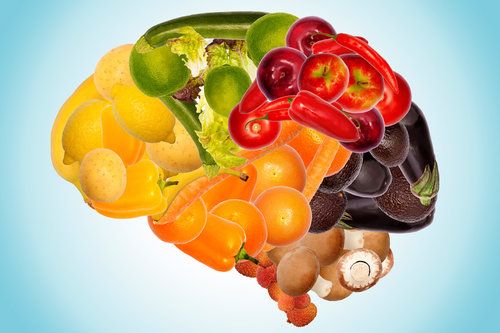Introduction:
The age-old adage, "You are what you eat," rings true on many levels, and increasingly, research suggests a strong link between our diet and mental health. While we once considered mental well-being as primarily influenced by social, psychological, and genetic factors, we're now beginning to understand the profound impact of nutrition on our mood, thinking, and overall mental wellness.

Emerging scientific evidence reveals that the food we consume can influence our brain chemistry, impacting neurotransmitters like serotonin and dopamine, which play crucial roles in regulating mood, sleep, and cognitive function. This growing body of research suggests that adopting a balanced and nutritious diet might hold the key to not only improving our physical health but also enhancing our mental well-being.
The Gut-Brain Axis: A Two-Way Street
One of the most compelling areas of research highlighting the diet-mental health connection is the gut-brain axis. This complex communication network between our gut and brain involves a fascinating interplay of nerves, hormones, and the microbiome – the trillions of bacteria residing in our digestive system. These gut bacteria play a critical role in digesting food, producing vitamins, and influencing our immune system.
Importantly, research indicates that the gut microbiome can also impact our brain function and mental health. Imbalances in gut bacteria have been linked to mood disorders like anxiety and depression, highlighting the importance of a healthy gut for optimal mental well-being.
Nourishing Your Mind: Key Nutrients for Mental Health
While a holistic approach to a balanced diet is essential, certain nutrients deserve particular attention for their potential mental health benefits:
- Omega-3 Fatty Acids: Found in fatty fish, flaxseeds, and walnuts, omega-3s are crucial for brain health and have shown promise in reducing symptoms of depression and anxiety.
- B Vitamins: Essential for neurotransmitter production, B vitamins like folate (found in leafy greens), B12 (in meat and dairy), and B6 (in poultry and bananas) contribute to mood regulation.
- Vitamin D: Often called the "sunshine vitamin," vitamin D plays a vital role in brain function and mood.
- Zinc: This essential mineral, abundant in oysters, pumpkin seeds, and legumes, is involved in regulating brain cell communication.
- Magnesium: Known for its calming effects, magnesium (found in dark chocolate, spinach, and almonds) can help regulate stress hormones and improve sleep quality.





